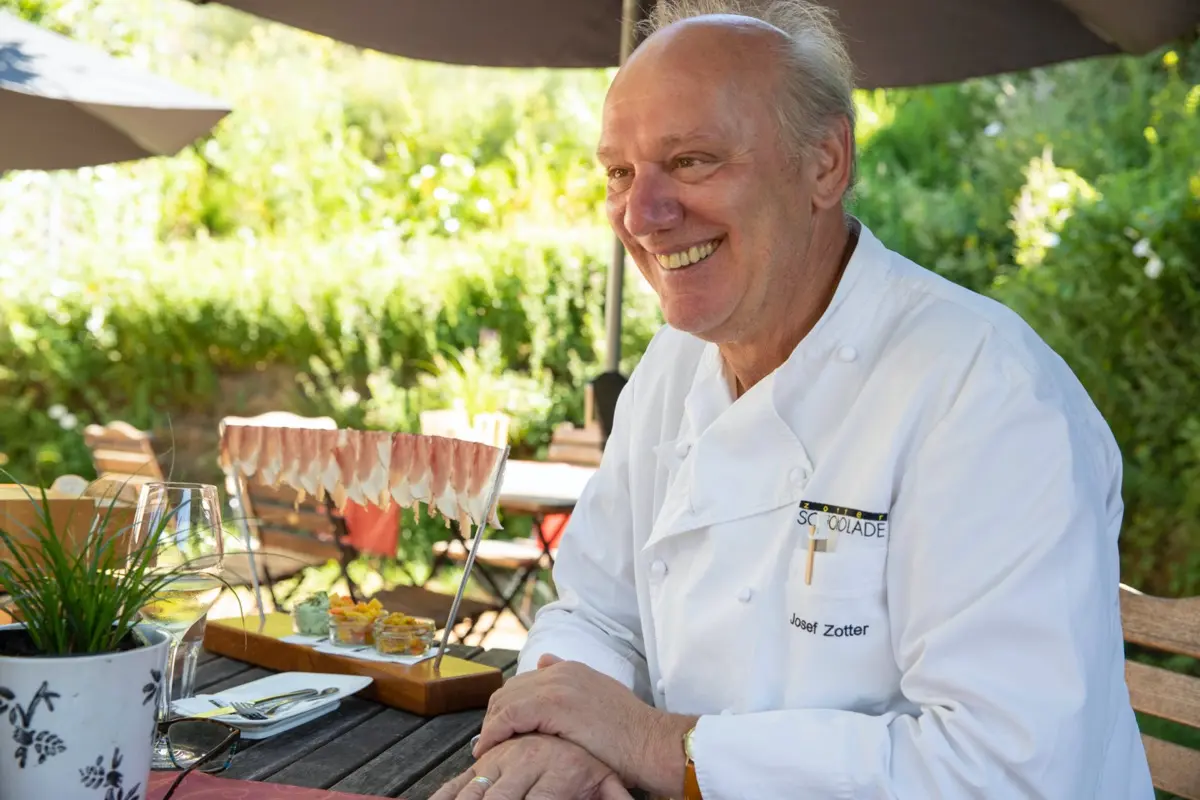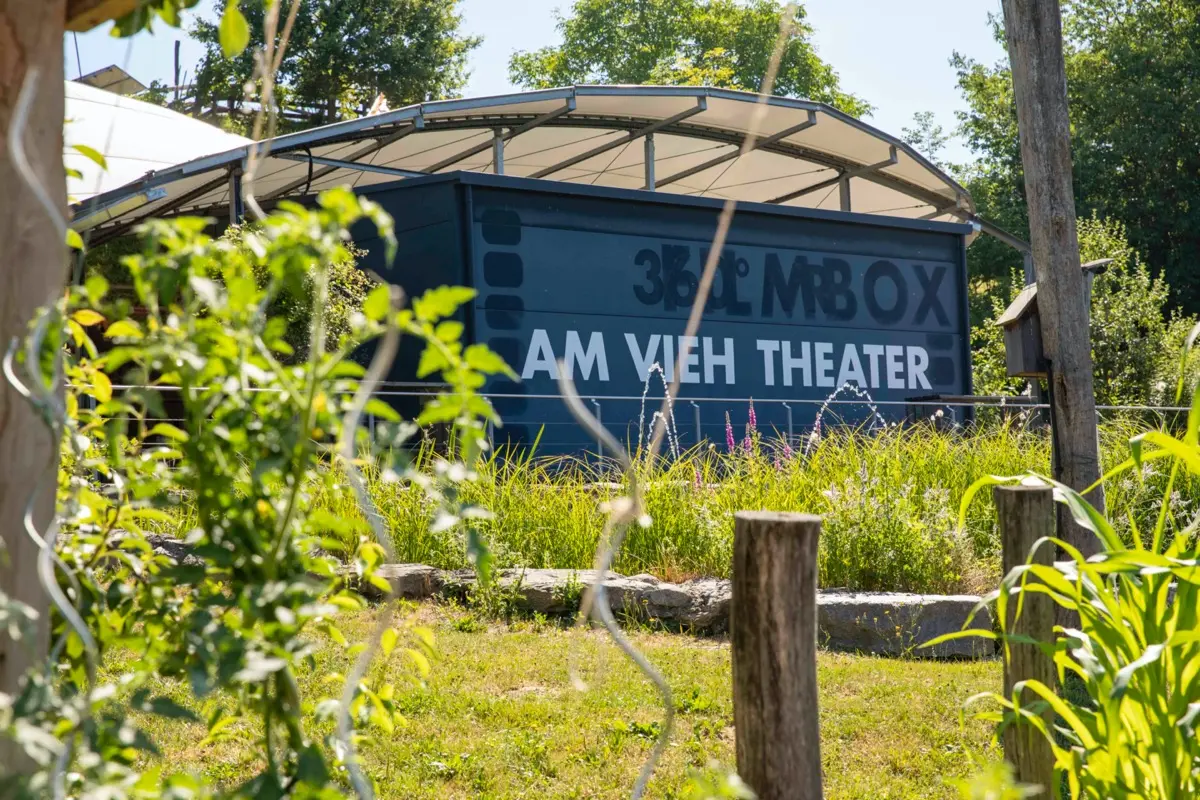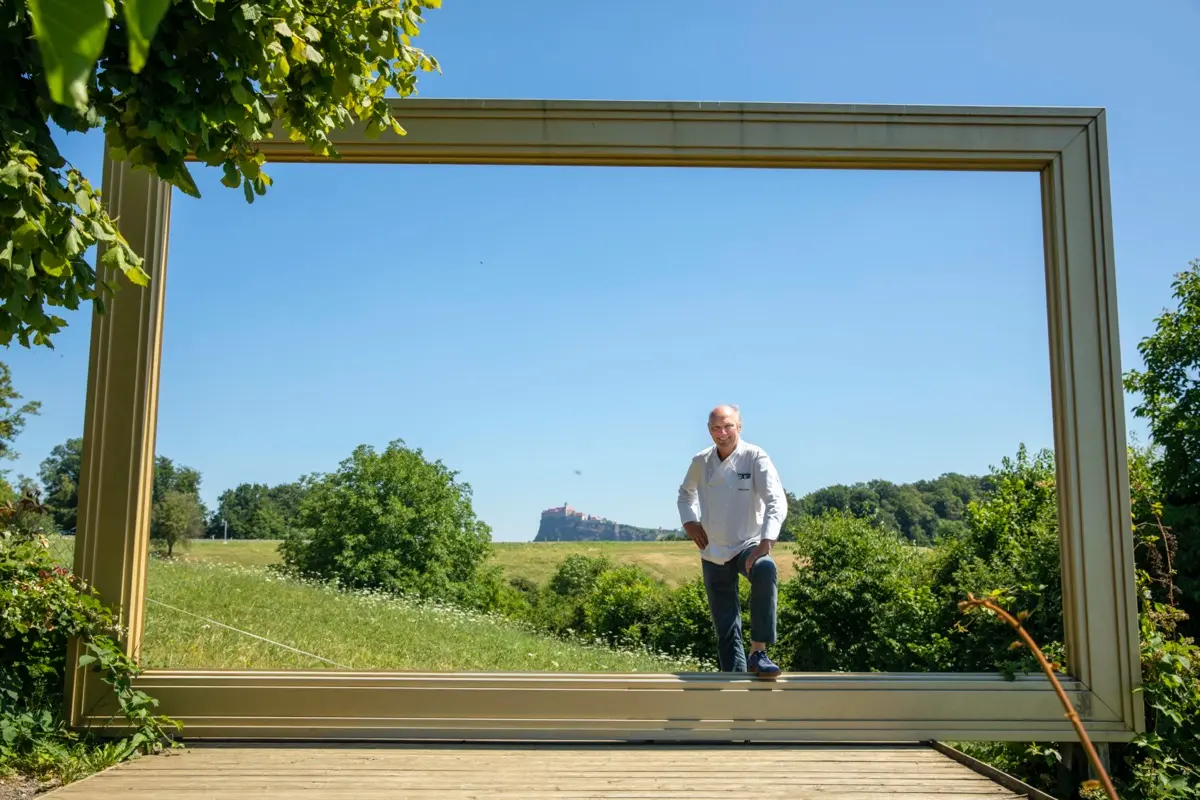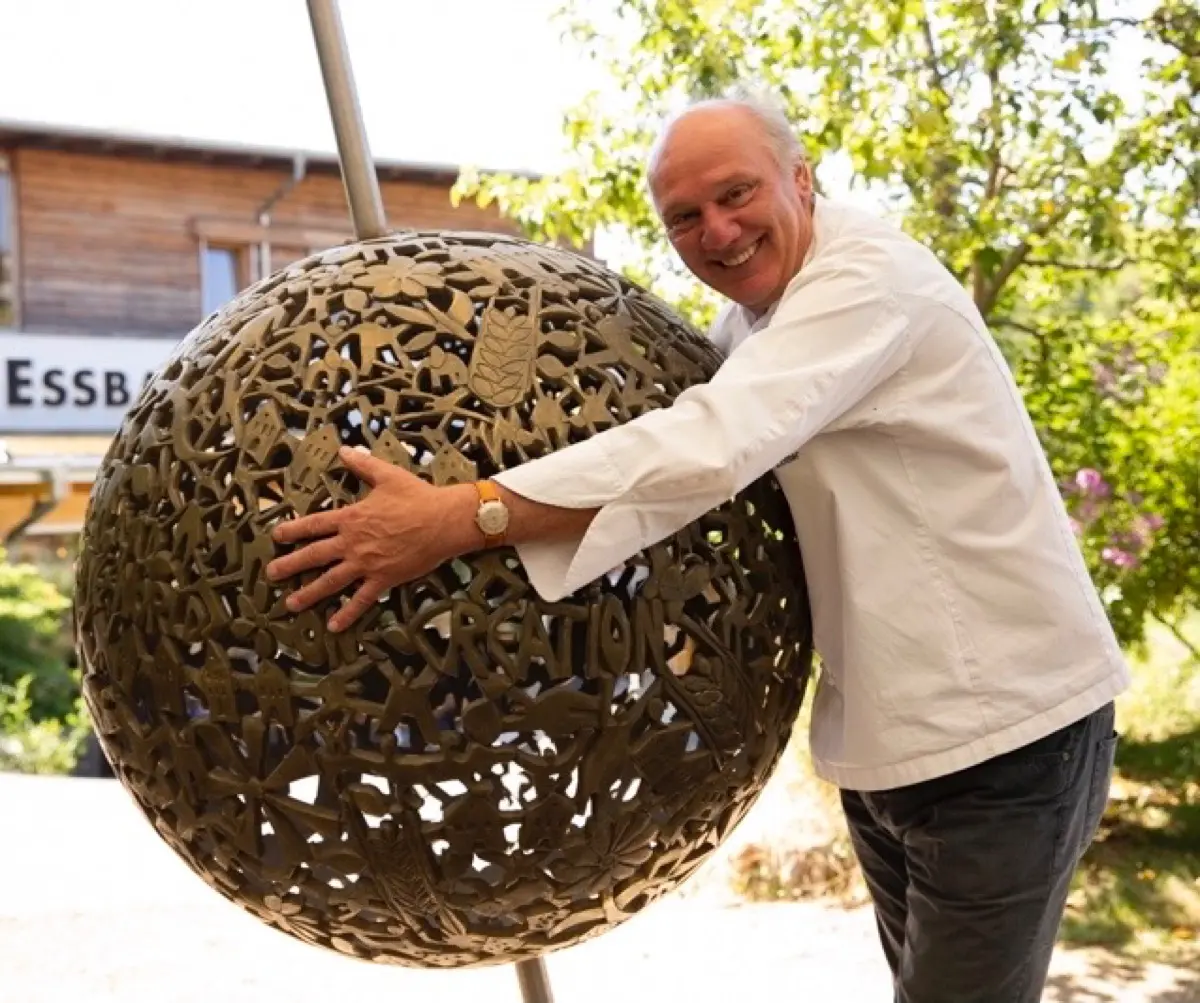Josef Zotter is one of the inventors of hand-scooped chocolate, which he sells worldwide in 500 flavors created from 400 different organic ingredients. The successful entrepreneur from Styria produces exclusively in organic and fair quality. At the same time, the multi-talent embodies the impresario of his chocolate store theater, where all cycles of chocolate production can be experienced - tastings included. Transparency is also the motto of the "Edible Zoo," where visitors can experience organic agriculture on 27 hectares. In total, the "Andersmacher" and visionary manages 90 hectares as a farmer.
An e-mobile pioneer
Josef Zotter's first e-car was a Citroën Saxo électrique, which he bought in 1999. At the time, it took him two days to get from Carinthia to his home. Charging infrastructure: a foreign word back then. Josef Zotter is happy to pass on his personal experience of driving electrically to his employees.
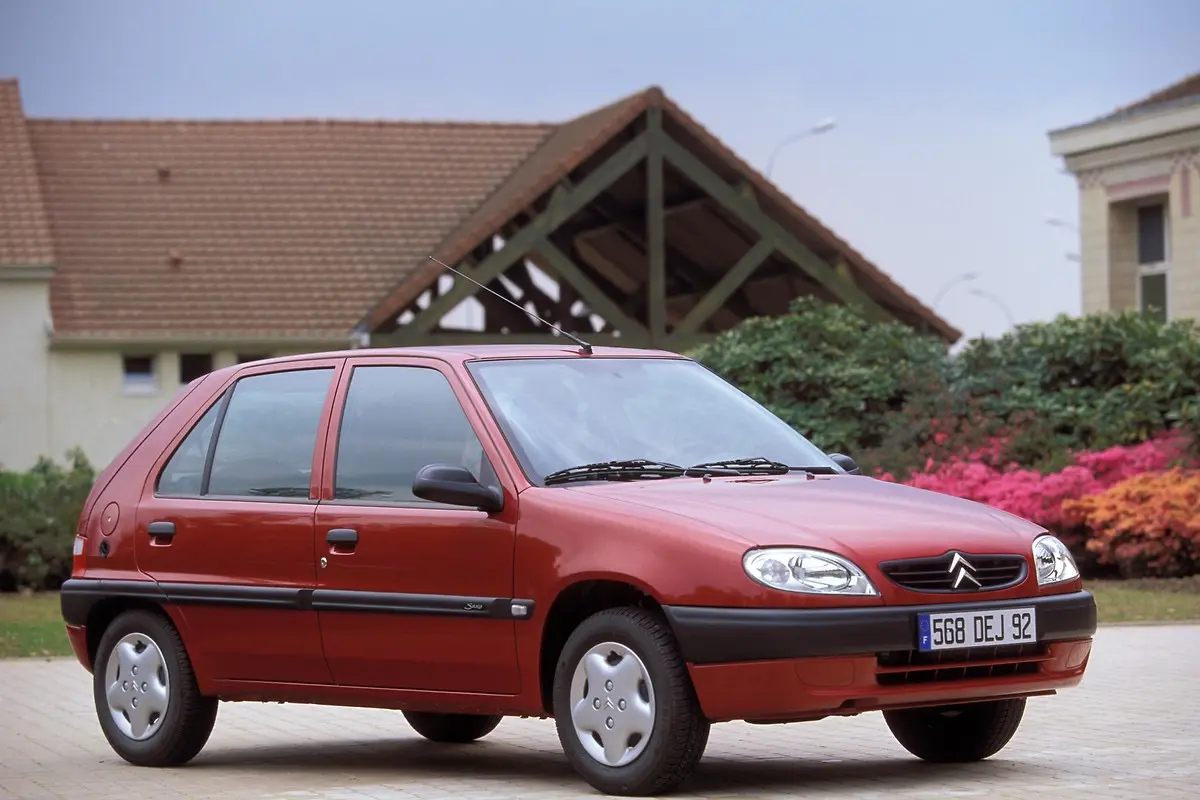
Since this time as an e-pioneer, the Zotter e-fleet has also grown continuously with his personal experiences. This now includes an e-motorcycle, an e-moped, an e-scooter and a brand mix of eleven electric cars. Two e-load bikes complete the potpourri of the environmentally friendly fleet. For this, 10 charging stations are available for company cars (own use only), in addition to two public, chargeable chargers and two charging stations for e-bikes.
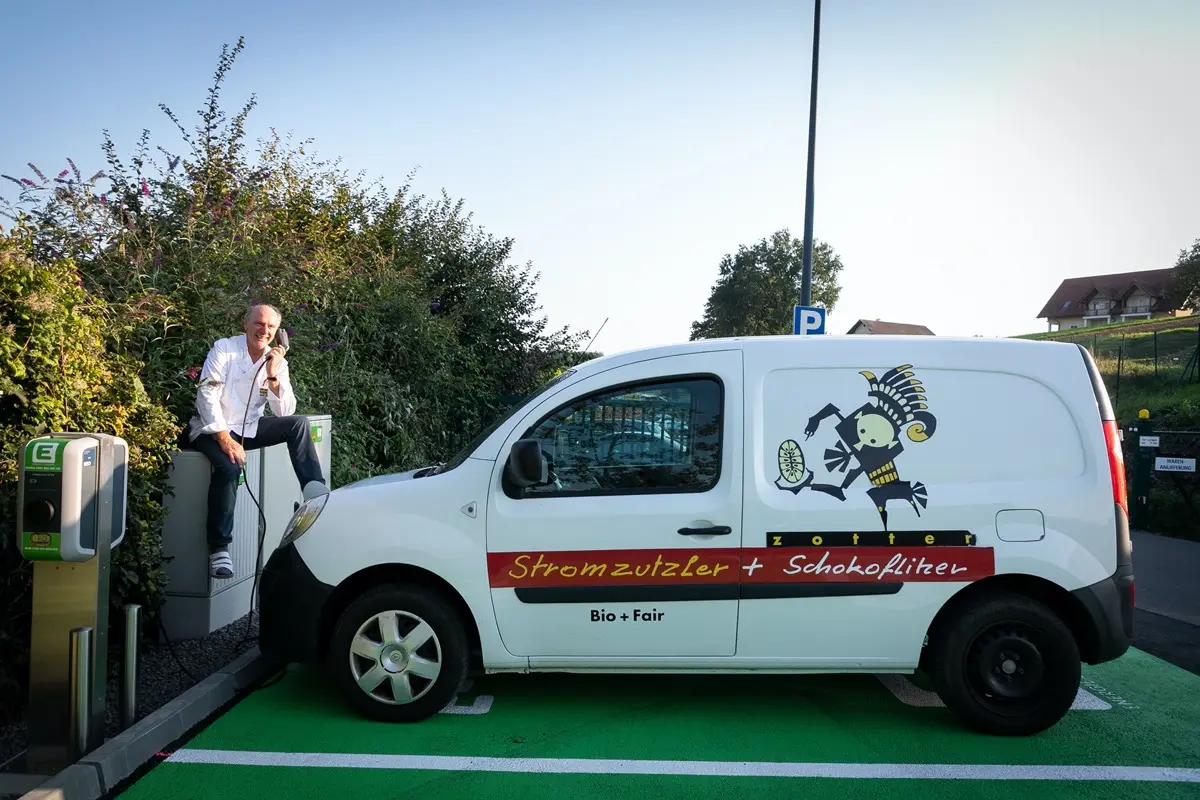
Typical "Sepp", as Josef Zotter likes to be called by his employees: "it is important that the boss drives the smallest car in the fleet". Consequently, the small "Saxo" was already parked in the "one-car parking lot" in 1999, surrounded by larger employee vehicles. A statement. Since 2012, this spot has been occupied by an Opel Ampera. Zotter likes to tell a little anecdote about this electric model with range extender: When he takes his aging Ampera with a mileage of over 400,000 km to the workshop once a year, the mechanics say: "Look, now the Zotter is coming again, on which we earn nothing, nothing is broken again anyway." Josef Zotter, on the other hand, appreciates this aspect of the service-friendliness of e-cars... His attitude toward e-mobility is also manifested in his statement that he does not want to take electric two-and-a-half-ton vehicles for a drive. This would be too much of a contradiction to his holistic, ecological approach.
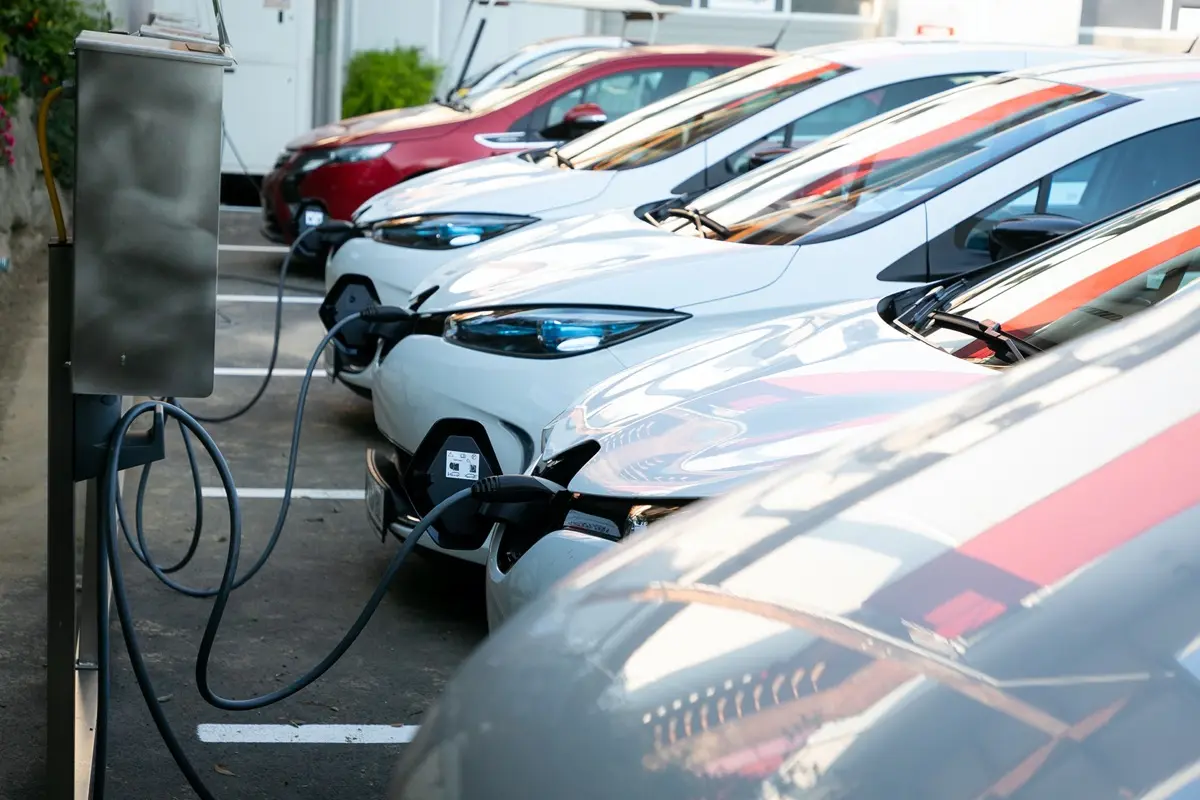
In the meantime, the female employees as well as the family members are convinced of the "Stromern" and know for which purpose the respective vehicles are predestined. Fears about range are a thing of the past. And while Josef Zotter is busy talking, a young employee comes with the finest bacon on a tray and Sepp comments: "Look, that's our "ham online". A real Zotter as he lives and breathes.
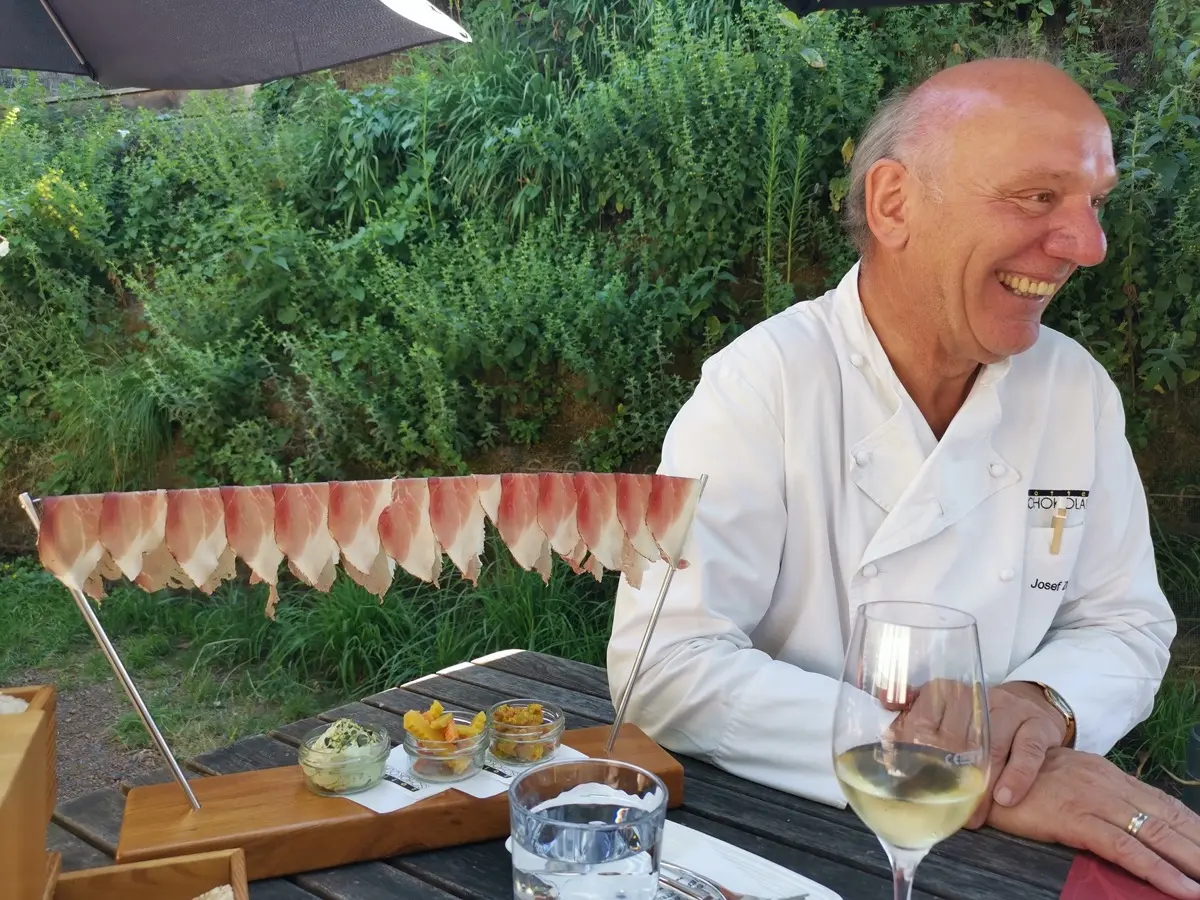
We continue to listen to him with joyful anticipation. So that you can share in it, hear for yourself what "Sepp", the "farm romantic", as he characterizes himself, knows how to tell.
Green power generation as a logical consequence of the sustainability claim
Already 64% of the entire energy consumption, including the charging current for the e-fleet, comes from the company's own electricity generation. Initial energy efficiency measures have already been initiated through the installation of a photovoltaic system with 108 modules and an output of 76.5 kWp (yield: 99,000 kWh/year). In 2015 and 2018, the share of own electricity increased due to the commissioning of further photovoltaic areas, and in 2021, further photovoltaic modules with an output of 199 kWp will be commissioned in the agricultural area. The agriculture and gastronomy in the "Edible Zoo" are energy self-sufficient thanks to the photovoltaic system. The remaining 36% of the total electricity requirement is provided by purchasing certified green electricity. Thus, the energy supply at Zotter is based on 100% "green electricity".
In his private life, Josef Zotter lives in the middle of a small "special class eco-paradise," as he calls his refuge. Everything is allowed to grow there on four hectares, except for a small track around the house, which he mowed in ten minutes.
Typical Styrian favorite dishes
The "Andersmacher" lists his favorite dishes since childhood. As before, he says, it's Styrian fried chicken and beetle bean salad. He adds that the beetle beans are now also known as "Styrian olives" and are among the products that have been included in the EU Register of Protected Designations of Origin. Pickled in oil, vinegar and herbs, a delicacy of a special kind. And of course enriched with the famous Styrian pumpkin seed oil.
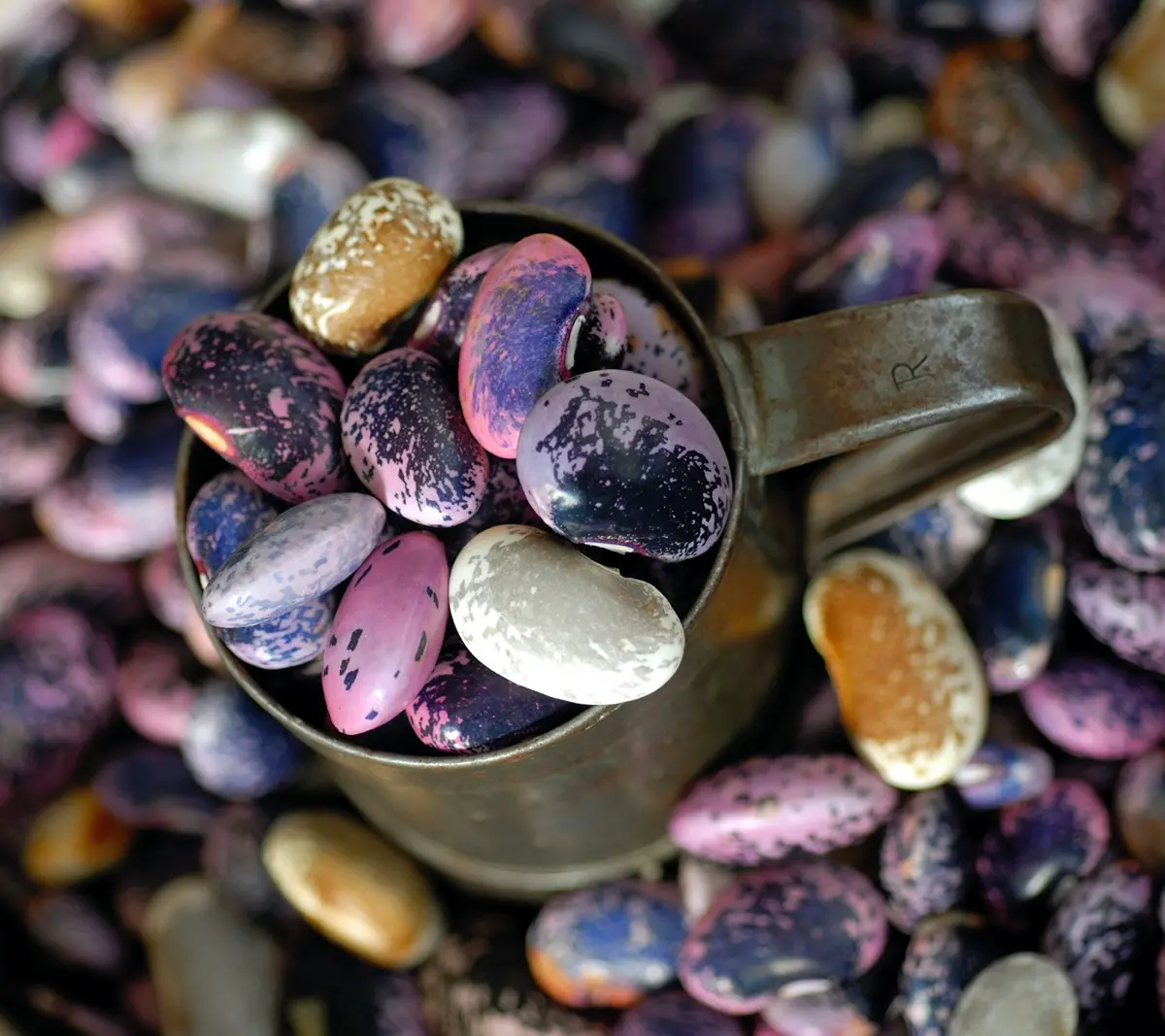
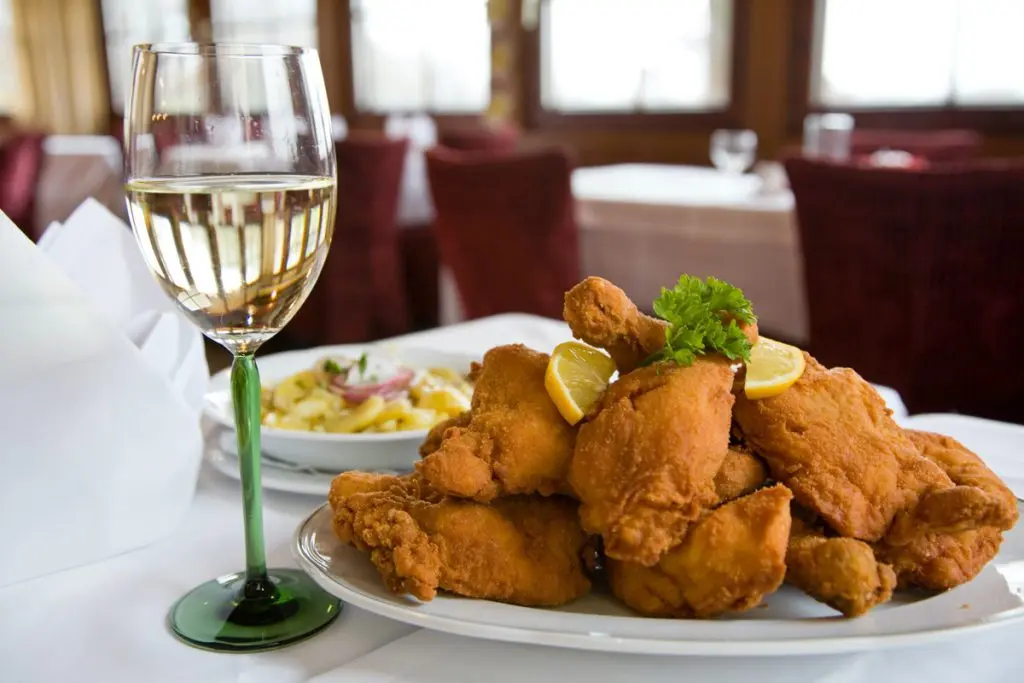
One of his first daring chocolate creations was a pumpkin-marzipan chocolate 30 years ago. At that time daring, and certainly something special. Then followed the cheese chocolate, which was already polarizing, and immediately after that the hemp chocolate for the younger ones. The "Zotteri" took its course.
We have now established the link to childhood, but has anything changed in eating behavior, in his attitude to agriculture or to the production of food in general?
Now the "Sepp" is truly in his element. How could it be otherwise, he sees himself as a "vegetarian away from home". He uses this term to describe the fact that he knows what's on his plate at home: everything is 100% organic, 100% fair trade, 100% green electricity. A clear attitude, no mishmash of da a bisserl Bio, da a bisserl Ökostrom. The Zotters also don't need an external agency to create an eco-image. He attributes the steady growth in sales in part to the fact that buyers of Zotter products trust their quality and the promise of sustainability. The result: despite the Corona-related drop of more than 100,000 visitors to the Zotter Erlebniswelt, sales increased in 2020.
Lucky
And while we take a piece of the "ham online line," Josef Zotter points to the sparse patch of forest beyond the small valley of his 90-acre property. "Look at those pigs over there". We don't recognize any wild ones, but freely roaming sows, the primitive "Mangaliza" breed. Small and large ones scurry through the forest floor. Pure animal welfare. Directly adjacent to Zotter's "Animal Oasis", a conventional farmer "produces" 3,000 pigs...
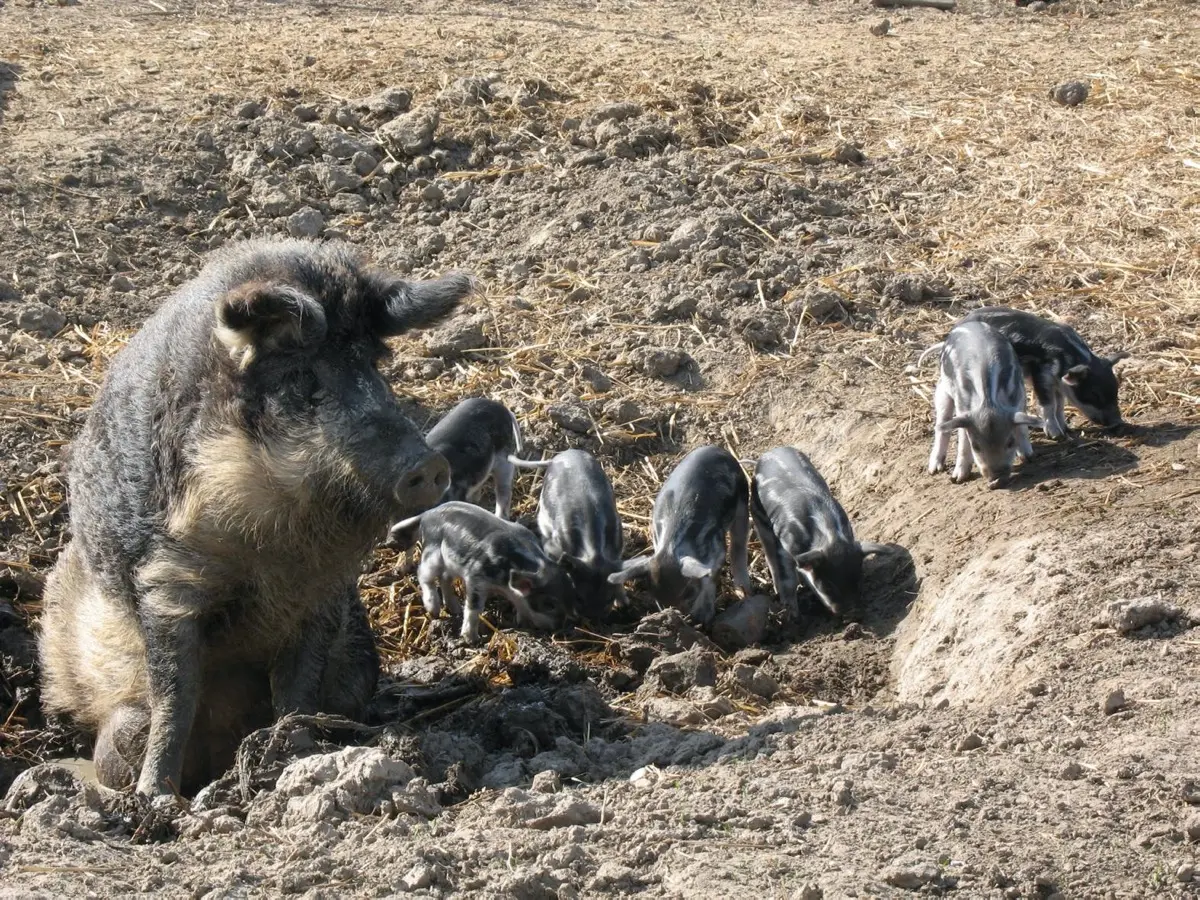
Zotter loves his animals. They are not only clean, but very intelligent. In contrast to intensive pig farming, he also only has to do "housecleaning" in the stables twice a year. And there follows another anecdote that is typical of the world of life at the "Zotterei," his team and the joyful atmosphere in and around the Erlebniswelt am Bergl. His current "praline maker", 23 years young, had applied "in a different way" for a position for a chocolate maker apprenticeship with the "Sepp". She appeared with a little pig on a leash for a spontaneous job interview on the sidelines of an event. She looked Josef deep in the eye and said succinctly, "Mr. Zotter, I'd like to apply for a job with you," thus hitting a bull's eye with him. He hired her immediately. She had been "lucky" in the truest sense of the word.
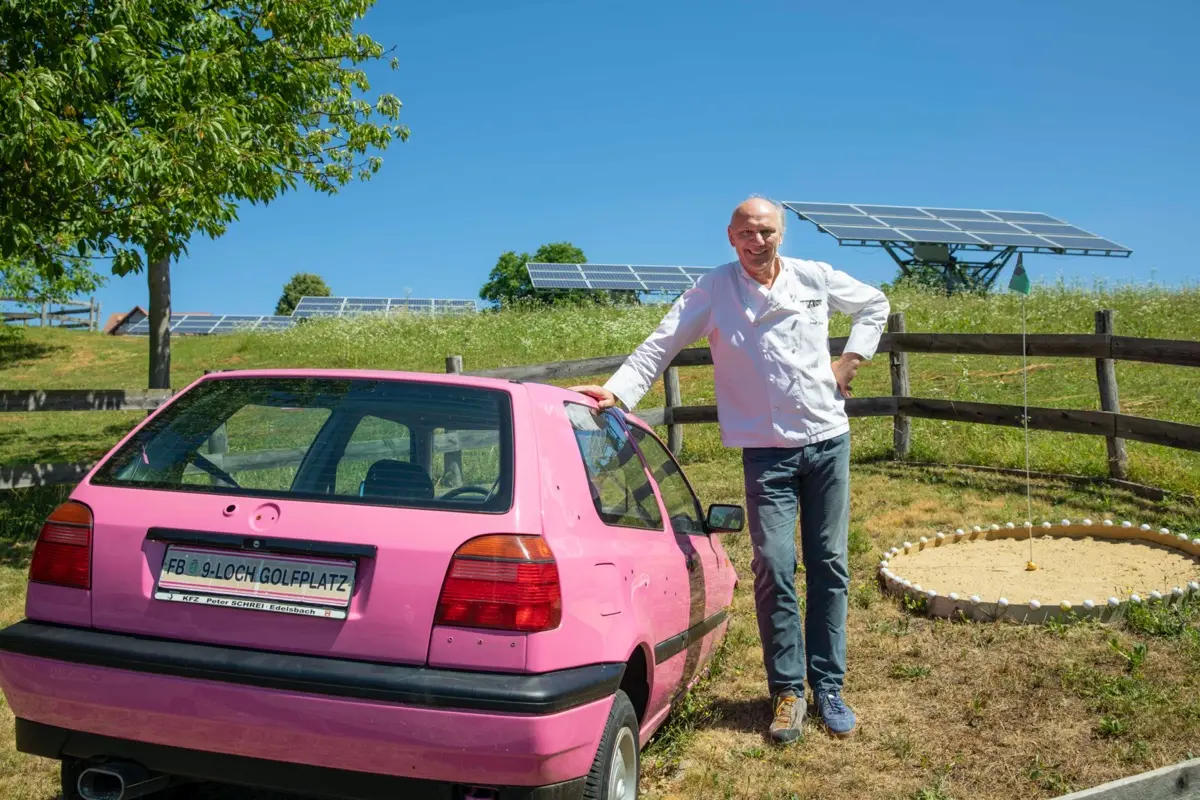
Of course: social commitment
As an aside, Josef Zotter notes that there would be little sick leave or turnover in the company. Of course, there would be free food for everyone, freshly cooked from the organic restaurant, the menu, breakfast and dinner, including drinks. In the interview, we don't often talk about numbers. The average sickness rate in Austria is around three percent, and in his case it is around 1.6 percent, reports the multi-entrepreneur. All the good deeds and his commitment to his employees pay off as a matter of course in economic terms as well.
The fact that "Sepp" also knows how to deal creatively with living space in his adventure room is explained when we ask about possible overnight accommodations in this idyll. No, not that, says the chocolatier, different-maker and farm romantic, but he keeps three temporarily inhabited "apartments" for artist friends. Now, however, during the vacation season, the apartments are used as a kindergarten, a care station, so to speak, for the children of the women who work at the Zotter Erlebniswelt. In part, these accommodations in the middle of the Zotter Paradise provide living space for refugees.
Now we have been sitting together for far more than the planned 30 minutes. And we are not left high and dry, because in parallel to his stories and anecdotes, he orders a glass of Styrian Sauvignon for us from Adam, the young waiter, "but please pour a quarter of a millimeter less than usual, the gentlemen still have to drive on. Every second sentence of Josef Zotter is punctuated with a wink. The mood remains joyful. One bon mot gives the other. But we hold the line.
"Edible" animal garden
A unique feature in the Zotter experience space, next to the famous "Erlebnis-Schokolaterie" in the enclosed area of the Zotter empire, is the "edible animal garden" in the outdoor area. It is not a zoo in the true sense with exotic animals, but here live domestic farm animals, which are kept on large pastures appropriate to the species.
In the beginning, it was not sure whether the concept would be a total flop or a sustainable success story. At first, it was the teachers who didn't quite know how to explain an "edible zoo" to the children, while the children were allowed to pet and feed the animals. Transparency ended up being the solution word. Talking about what goes on before the food gets to the plate. Zotter even wanted to launch a petition that would oblige every animal farmer, meat producer who accepts public subsidies, to create three, freely accessible, parking spaces in front of his farm, from where he could look into the barn through a large window. So it is not surprising that his farm is excluded from all farmers' organizations.
The idea has been a success, with the entire chocolate and animal world attracting over 200,000 visitors a year. And it makes an essential contribution to the conscious, qualitative and less-consuming consumption of animal food, as the animals are visibly more highly valued here than in factory farms. In short, Zotter wants to sensitize people to the value of what is later found on their plates. People immediately recognize that good work has gone into all the "products", because transparency of the individual work steps creates a sensorium for the respect of our food.
Difficult beginnings
The fact that Josef Zotter became a successful chocolatier and organic farmer was, as is so often the case in generational conflicts, due to his desire to prove to his father that he knew how to shape his own future. His father was a "hardcore farmer" who always used the latest artificial fertilizers and sprays available from the agrochemical industry. Quite the opposite of the "different" farmer, who was on the lookout for the latest organic farming methods. So at the age of 15, Josef Zotter wanted to get away from the toxic spraying scenario as quickly as possible. However, after ten years, shortly before his death, Sepp's father became an admirer of his son and enjoyed observing his son's work and output. Culminating in the statement, "you're probably right after all".
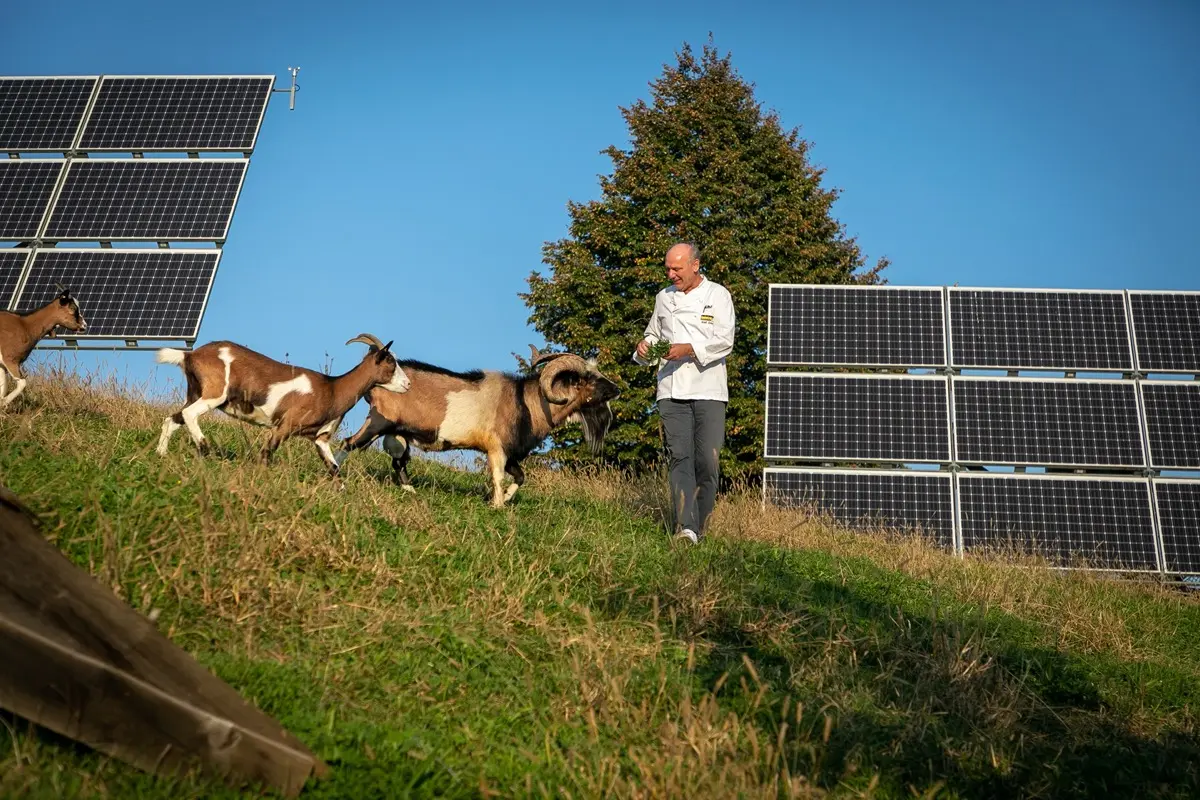
After Zotter had made his experiences with several coffee house start-ups in Graz, had become more and more aware of global climate change and its causes, he started his chocolate shop in the former cowshed of his father's farm; for the time being, his father had refused him the inheritance of the agricultural land. To young people who come to him and ask about how to become successful and what his business plan was, he answers categorically: "forget it. if you have a good idea, you don't need money, all you need is a cellar, a garage." Start small and if the idea is not simple, it is not good. Proof of Concept by Josef Zotter. He and his wife have always been guided by these key messages.
The couple finds a balance to their full-time job in the "Zotter world" in the midst of their 5 hectare farm, for example, when watering the garden at 5 a.m. in the morning. Afterwards, over a cup of coffee, a feeling of gratitude arises over what has been achieved. In this muse mood, Zotter develops phrases like these: "we have to apologize to the young, because we have already lived wildly".
We chatted away wittily. an hour and a half instead of the planned 30 minutes. We would have wanted to spend hours in this environment of serenity, the authenticity of this man and the cheerful mood that spread like background noise in all of Josef Zotter's sentences.
Text and film: Elmar Thomassek
Pictures:
Lead story: Lutz Dürichen
Picture 1: Citroen
Picture 2 and 3, vehicles: Zotter
Image 4, Ham online: Lutz Dürichen
Picture 5 and 6, fried chicken, beetle beans: Steiermark Tourismus
Picture 7, pigs: Arche Austria/Czerny
Picture 8, "At the cattle theater": Lutz Dürichen
Picture 9, solar plant: Zotter

